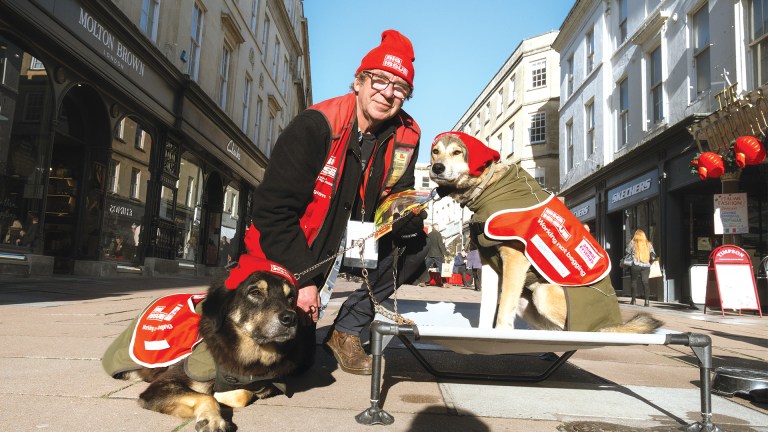“This means they have to rely on unsafe alternatives such as old clothes or toilet paper. This is not just uncomfortable and embarrassing – it puts women at risk of serious health issues.”
Single Homeless Project, alongside other homelessness and women’s sector organisations, is calling on the next government to do more to resolve women’s rough sleeping and prevent it from re-occurring.
It suggests that a practical measure that could be immediately is creating walk-in, 24-hour staffed, gender-informed women’s centres in all local authorities providing support to access accommodation as well as clean toilets and washing facilities and free period products.
Homelessness among women is often hidden. It is dangerous for women on the streets so they turn to other methods: sex work, sofa surfing, sitting in fast food restaurants and cafes or riding buses. These women, out of sight, are largely missed from official homelessness statistics.
That is why the women’s rough sleeping census was launched, and it is also why there is relatively little research into period poverty among people facing homelessness.
Researchers at the University of Southampton, Polly Hardy-Johnson and Stephanie Barker, are seeking to change that. They recently published a study which looked into the experiences of women facing homelessness during their periods.
Advertising helps fund Big Issue’s mission to end poverty
Its review of research found that women are being forced to use sponges, old clothes and used menstrual products during their periods.
Hardy-Johnson said: “Even when you have an abundance of products and they’re good quality products, periods can be difficult enough. I’ve interviewed teenage girls who have spoken about the embarrassment of coming on your period at school, and then to think that if you can’t then go home and stick your clothes in the washing machine or soak them in water, then what do you do?”
Women facing homelessness are sometimes refused entry to public bathrooms, the study showed, and they are having to rely on charities and local authorities to get period products.
Barker added: “I think what shone out to me was that women might be making themselves more vulnerable by, for example, stealing menstrual products because it’s a necessity. It’s something they need rather than something they are choosing to need.”
Now, Barker and Hardy-Johnson want to go further and create a project which smashes taboos about menstruation for people facing homelessness.
Barker said: “We’re going to give people cameras and ask them to document visually what it is like to menstruate while you’re homeless. We’re planning to have an exhibition around November time to showcase that and then also have some policy recommendations, because I suspect that there are few if any existing policies.”
Advertising helps fund Big Issue’s mission to end poverty
The Marylebone Project is the largest women’s homelessness charity in the UK. Its executive manager, Amy Hull, explained that women and people experiencing homelessness who also menstruate are at a “huge disadvantage when accessing menstrual care”.
Even with the scrapping of the tampon tax, period products remain expensive, but the problem extends beyond affordability.
“Many lack access to proper facilities for changing products or showering, and they often feel uncomfortable managing ‘period admin’ in male-dominated, mixed-gender hostels,” Hull said.
“Menstrual health is further complicated by menopause, conditions like PCOS and endometriosis, and overall gynaecological health. Many delay seeking medical care for cycle-related issues due to sexual trauma, shame, or stigma.
“The lack of proper facilities exacerbates these challenges. Stress, poor sleep, and inadequate nutrition can cause some people to stop menstruating altogether while others may experience heavier, more unpredictable periods, reflecting the instability of their living situations. These issues have a spiral effect, impacting mental health and dignity, often pushing individuals further away from community, employment, and support, and deeper into homelessness.”
The Marylebone Project is open 24/7, 365 days a year. Its facilities include pads and tampons in our toilets and a full range of products at reception, from menstrual cups to period underwear. It also offers various healthcare support services, including workshops on menopause, PCOS, and endometriosis, as well as connections to GPs and gynaecological services.
Advertising helps fund Big Issue’s mission to end poverty
The Single Homeless Project also has advice on where to get help.










